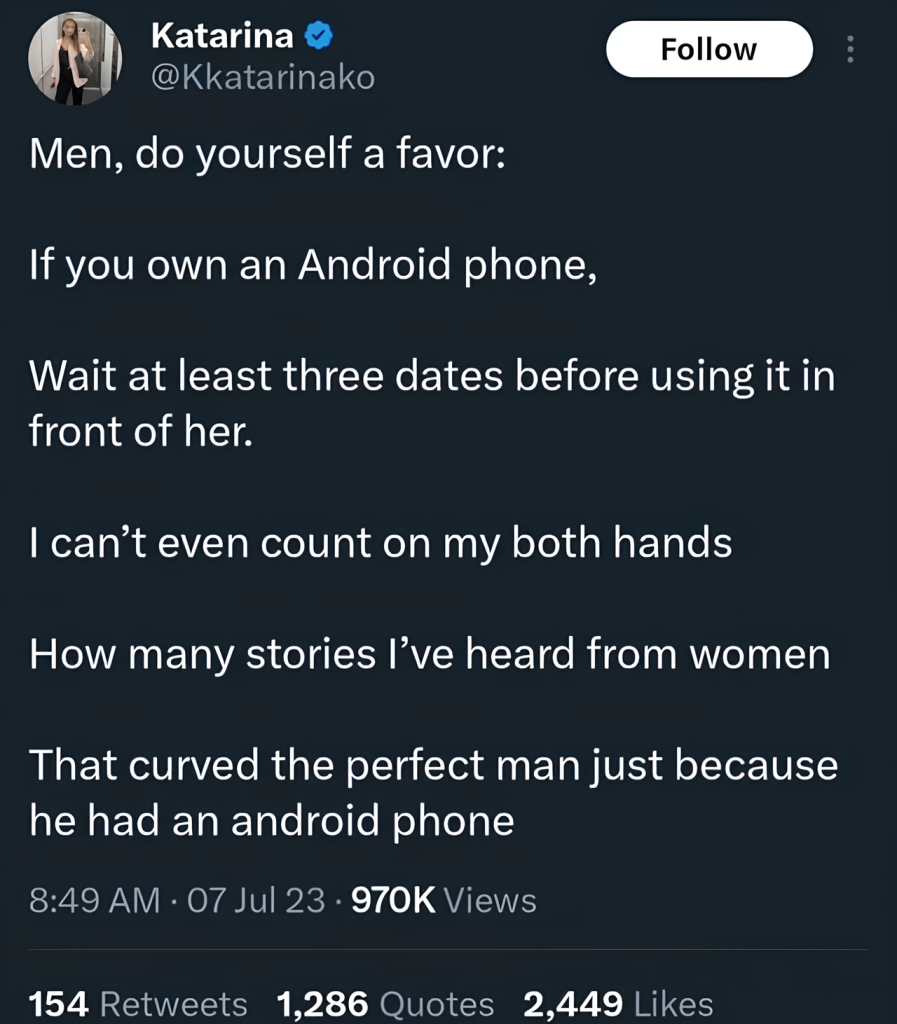Is Carrying an iPhone a Symbol of Wealth and Status?
In today’s society, the smartphone you carry can make a strong first impression and lead people to make assumptions about your income level and social status. Specifically, owning the latest iPhone model is often viewed as a sign of greater affluence. But is this perception accurate?
Case in point….

According to surveys, iPhone users do tend to have higher average salaries compared to Android users. One study found that iPhone owners earn 43.7% more on average than Android users. This suggests that iPhone users tend to have more disposable income to spend on pricier phones. The latest iPhone can cost over $1,000, whereas the average price for an Android phone is around $300.
Additionally, Apple’s marketing promotes an air of exclusivity surrounding its products. Unlike Android phones, which easily share files across brands, Apple devices foster an insular ecosystem between iPhones, iPads, watches, and laptops. iPhones without protective cases are also commonly flaunted as a sign someone is not afraid of losing or breaking a pricey gadget.
Generational divides emerge in user bases as well. Younger Americans are more likely to use iPhones, especially Gen Z and Millennials. Android leads slightly with older age groups like Gen X and Baby Boomers. Globally, those same younger generations also trend toward iPhones over Androids.
However, it’s too simplistic to claim Androids are just for poorer people. Android dominates globally with over 70% market share. In the U.S., the iPhone leads but Android still claims 42% of users. Factors like customization and affordability help attract Android users across income levels and ages.
In the end, assumptions based solely on smartphone brands come off as superficial judgments. While trends emerge in user bases between platforms, individuals select devices based on preferences, not wealth. An Android phone does not inherently signal low income, just as an iPhone fails to guarantee high salary and status for every owner. Evaluate people based more meaningfully on their character and actions, not by branding stereotypes.
I own a Galaxy S21+ from 2021 costing $1,070. It’s LARGE, still has the original battery, and I do EVERYTHING on it that I would do on a desktop, laptop or iPad without the need to carry a laptop or iPad wherever I go: write/edit legal documents, articles, books, charts, etc. that can’t be done on an iPhone. iPhones are smaller, at least back then they were, and are uglier on its face. For example, the screen on my android gives me full screen range without border hindrances giving me full screen for watching movies horizontally. WTH would I pay more for an iPhone that can’t function like an executive assistant AND searches. A leader is not a follower, and a follower is not a leader. I’m not trading my android for an iPhone. I am a registered paralegal and make a bundle of $$$$.